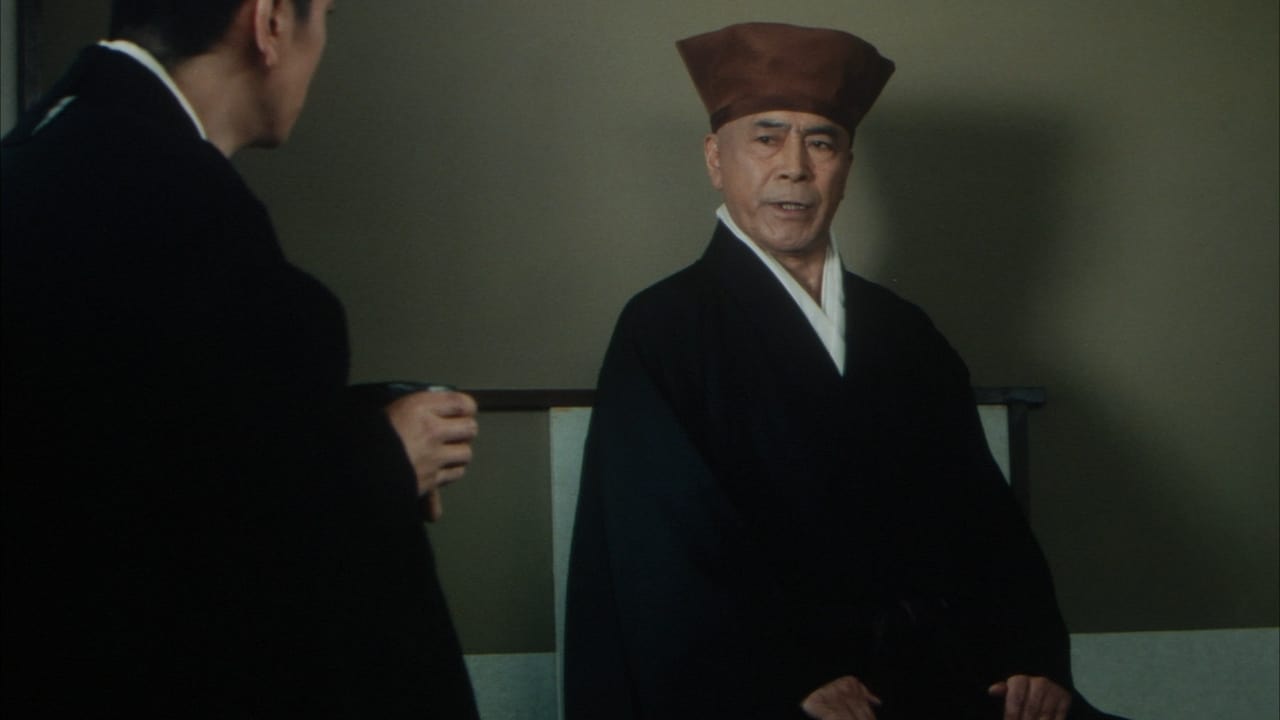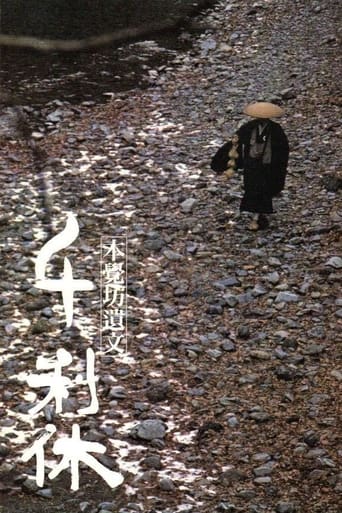

ridiculous rating
... View MoreIt's complicated... I really like the directing, acting and writing but, there are issues with the way it's shot that I just can't deny. As much as I love the storytelling and the fantastic performance but, there are also certain scenes that didn't need to exist.
... View MoreThis story has more twists and turns than a second-rate soap opera.
... View MoreJust intense enough to provide a much-needed diversion, just lightweight enough to make you forget about it soon after it’s over. It’s not exactly “good,” per se, but it does what it sets out to do in terms of putting us on edge, which makes it … successful?
... View MoreThe movie is about one of the deepest mystery in Japanese history about the death of Sen No Rikyu, the founder of Japanese tea ceremony, and the "Senke" tea ceremony schools.For many ages, there has been two mystery surrounding the death of tea ceremony master Sen No Rikyu. First is why Hideyoshi, the then ruler of Japan ordered him to commit seppuku (harakiri), and second, what was going through Rikyu's mind when he obliged to slit his belly.The movie is a tale told by Honkakubou, Rikyu's closest disciple. The movie tells the tale of the final meeting between the two at the last days of Sen No Rikyu's life. The Rikyu in this movie supposedly told Honkakubou that each tea person has their own path. This is the path for Rikyu, and for no one else. The movie also speculates that the reason for Hideyoshi ordering Rikyu to commit seppuku is because Rikyu has presented his opinion against Hideyoshi's plan to invade Korea. I am not qualified to comment on the tea culture that this man has created, and its impact on the Japanese culture, but I can understand the difficulty of figuring out these two mysteries surrounding Sen No Rikyu after almost 500 years has past. More common understanding is that the influence Rikyu had on various people in power at the time was feared by Hideyoshi who was starting to be a paranoid schizophrenic, and him and Hideyoshi didn't see eye to eye, or Hideyoshi was suspicious of conspiracy by Rikyu, imaginary or otherwise. Since Hideyoshi was the then ruler of Japan, Rikyu had no other choice but to oblige, and commit seppuku.The story is therefore a pure speculation, and is not based on any new found evidence in recent years. The movie meanders due to lack of focus on the facts. Compared to more recent movies made by the Chinese on their legendary figures like the "Assasin" that delved into the life of Cao Cao, the movie is weak in its thesis, and production. The story was mostly melodramatic, and didn't have much substance. Toshiro Mifune puts in good performance as Rikyu. He put dignity to the character of Rikyu as we would expect him to be.It's an okay production on the death of Sen No Rikyu, but probably a better job could be done to show the life and philosophy of one of the greatest cultural master of all times.
... View MoreThis Movie is fairly distinguished from other ones by it's quiet way to tell it's story. The film looks for an answer for the reasons of suicide of the most famous Japanese tea master Sen-no-Rikyu in the late 16th century. The story bases on a book by Mr Inoue, called "Honkakubo Ibun". Without using any cheap show effects like naked skin, speed or violence the movie is able to tell the viewer a lot of the Japanese culture and the roots of the tea-ceremony. Pictures, which will abduct you above the clouds and a deep warm expression adding that movie to the leading ones of Japanese film genre. It's not only a film - it's highest art!
... View MoreIt seems to me that the film is one of the best of Mifune's films (if not THE best). One can read about the Japanese culture for years, but the film makes one feel the very essence, the very soul of Japan. It is a kind of 'satori' in itself, as one has no need for words, it's a kind of living-in. I think that the scene when Mifune's character is performing a tea ceremony in front of the army that is to go to battle next day and most probably perish is unsurpassed in beauty and laconic, but forceful expression.It is also a story of conflict between art and power, and one more proof of the independence of art and of an artist's courage. The film shows that one can rebel in one's art, and the effect will be much greater than any other form of rebellion. It is also a tale of human dignity and the tragic solitude of a man in the transitory world. This is not a film for enthusiasts of sword-brandishing and rivers of blood, it is a film for those who can see beyond the lines.
... View MoreThey say its runtime is 89, but the one I saw was much longer. I don't know. Anyway, this is a Zen movie, so you can appreciate it a lot if you can get a Zen attitude. If you wanna live fast and see fast movies, better get something else.
... View More